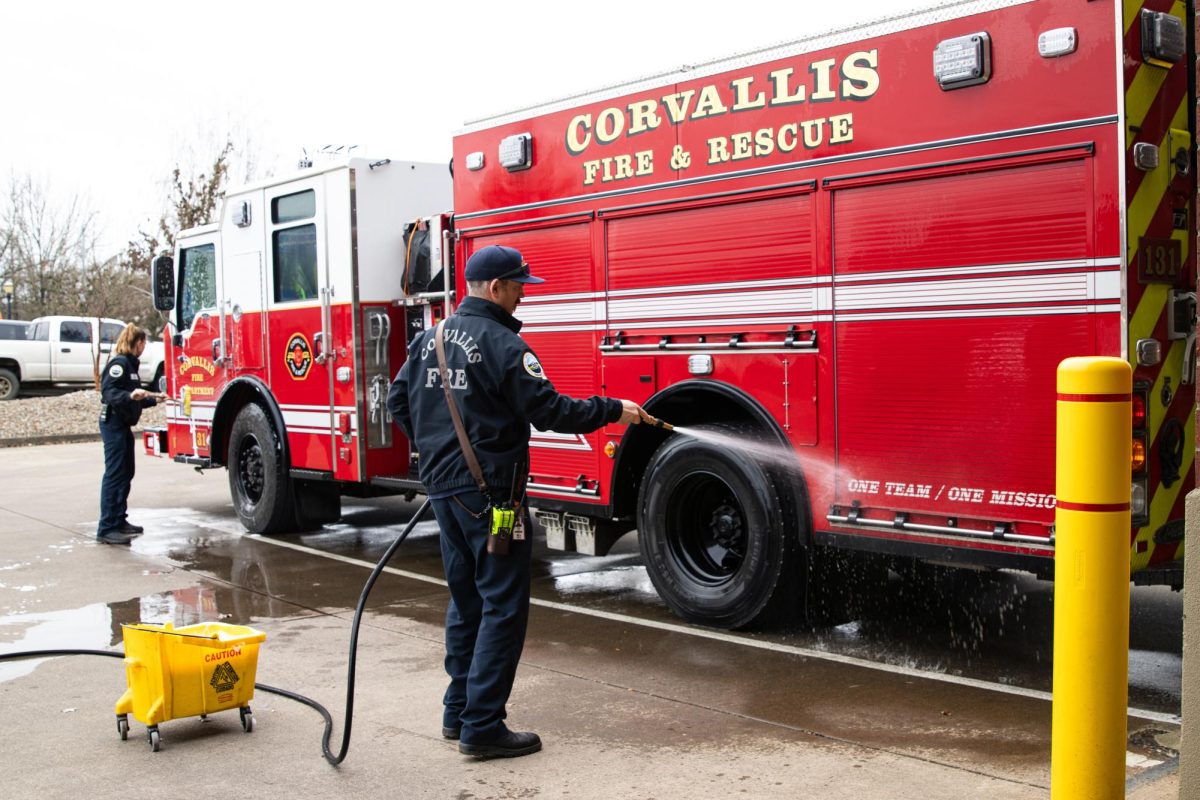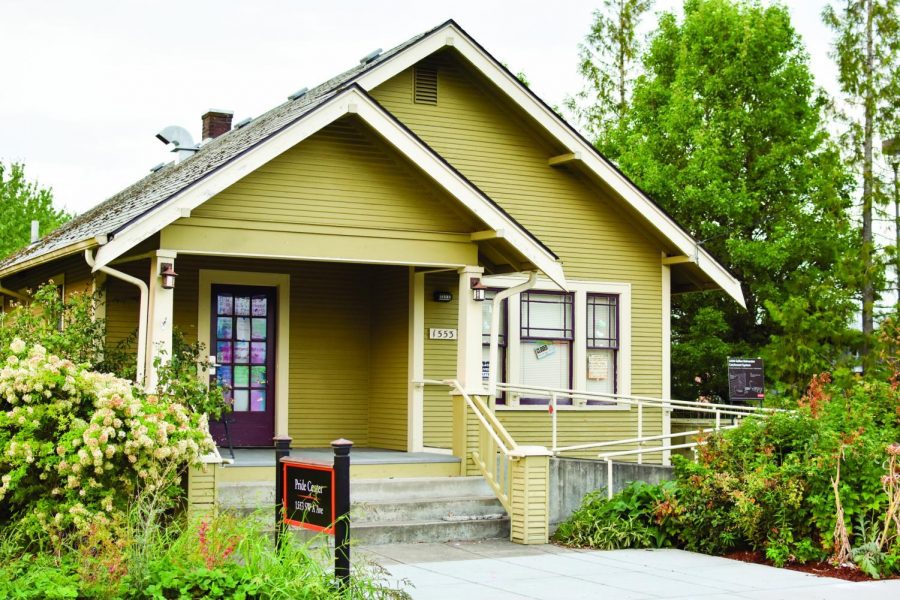Pride Center provides safe spaces
September 15, 2017
The Oregon State University Pride Center is a campus safe space intended for the LGBTQ+ (Lesbian, Gay, Bisexual, Trans*, Queer, Questioning, Intersex, and Asexual) community at Oregon State University. Through education and outreach, the Pride Center creates an open and non-judgemental space for individuals interested in learning more about human sexuality and gender identity.
“The Pride Center is a physical space, staffed by students, that provides connection to resources, community, and support for LGBTQ+ people and education for non-LGBTQ+ who want to be better allies,” said PJ Harris, a student liaison at the Pride Center in an email.
The Pride Center was first established on campus in 2001 as the Queer Resources Center, according to the OSU Pride Center webpage. In Spring of 2004, the OSU community voted to change the name to the Pride Center to support a more welcoming and inclusive environment.
“People can volunteer, attend events, or simply come and hang out. Many first time visitors think they need a reason to come and visit, but their reason can be as simple as getting a glass of water, relaxing on the couches while scrolling through social media, or just saying hello. Being in the space regularly can lead to conversations, opportunities, and many friendships,” Harris said.
The Pride Center offers services such as a study space, a lounge and a library of books concerning queer history and culture.
Campus Student Health Services also works in congruence with Student Health Services to provide care for students who identify as trans*, according to the Student health webpage.
Non-LGBTQ+ allies on campus are welcome and encouraged to participate with the Pride center.
“Whether or not we are affected, it is important that we show up for each other’s communities,” said Christine Hoang, a student leader liaison in an email.
The Pride Center offers many opportunities for those interested in learning more, including volunteer opportunities and on-campus events according to their webpage.
“The best tool you can have, in terms of being an ally, is education. Do Google searches, read multiple sources, watch testimonials- but always remember that the most reliable information on a specific identity is someone who self-identifies with it (not a third party),” said Harris via email.
According to Harris, the best way non-LGBTQ+ people can be an ally is to lend a voice to the conversation. This can entail speaking to local representatives, other non-LGBTQ+ peers and actively changing the way inclusivity is presented.
“The best service you can provide as an ally is your voice,” Harris said.
The Pride Center acknowledges different significant dates in the queer community such as Queer history month in October, LGBTQ Connect Week and World AIDS Day on December 1st to name a few, according to the webpage.
This year’s Queer history month is centered around Queer and Trans futures, according to Hoang.
“The vision for this theme is to recreate a queer and trans future that recognizes the past, disrupts the present, and imagines new worlds beyond the realities of oppression. It is about persuading ourselves that a better world is possible, and then doing the hard work of building that reality from how we envisioned it,” Hoang wrote via email.
The Pride Center’s next event is the Pride Connect event September 21 from 4-6 p.m.


















































































![Newspaper clipping from February 25, 1970 in the Daily Barometer showing an article written by Bob Allen, past Barometer Editor. This article was written to spotlight both the student body’s lack of participation with student government at the time in conjunction with their class representatives response. [It’s important to note ASOSU was not structured identically to today’s standards, likely having a president on behalf of each class work together as one entity as opposed to one president representing all classes.]](https://dailybaro.orangemedianetwork.com/wp-content/uploads/2025/03/Screenshot-2025-03-12-1.00.42-PM-e1741811160853.png)
























